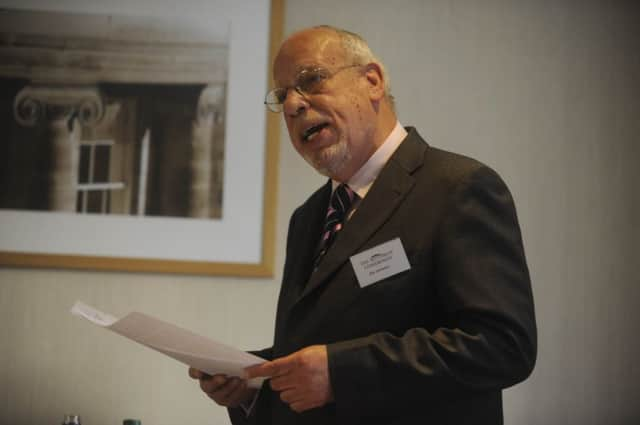Comment: Relax and let passive funds do the work


Investors on checking their stock market nest eggs in the past week will have enjoyed a quiet glow of satisfaction seeing the latest rise in value. All that careful research, the hours of investment selection, the agonised buying decisions, the careful sector weighting and the slavish pursuit of those highly-paid guru fund managers … it’s all paid off handsomely, hasn’t it?
Actually, you would now be as close to the FTSE 100’s 15-year high had you dodged all that grinding and swatting and put the money instead into a passive tracker fund. In fact, you might even have been better off avoiding the high management fees attached to actively managed funds and cruising on up in a low-cost tracker. Never has the debate on active versus passive funds raged more intensely than now.
Advertisement
Hide AdAdvertisement
Hide AdLast year was not at all good for active investment managers. While the market hit turbulence in the final quarter of the year before rallying, there was relatively little difference in the performance of market sectors. With markets overall being driven largely by broadly consensual views on interest rates and central bank policy, the boats, big and little, in the harbour tended to rise and fall with the movements in this opinion tide.
John Authers, the widely-followed FT columnist, took active fund managers to task last weekend for the practice of advertising their funds just when previous poor performance had dropped out of the one year or three year performance tables. According to Bank of America Merrill Lynch research, just 19 per cent of US equity fund managers beat the Russell 1000 index of large companies for the year.
At present the vast majority of funds are actively managed, according to the Investment Management Association (IMA). Passive funds made up only 11 per cent of the market.
But this is changing. And given the absence of outstanding performance last year, it’s hardly surprising that, with every month, more investors seem to be opting out of heavily marketed active funds with their star managers and choosing instead to invest with low cost tracker or exchange traded funds (ETFs).
And in any event, investors should treat these iconic FTSE milestones with caution. It seems to have taken an awful lot of puffing and panting for the stock market to regain a peak that was reached back in the final days of 1999. That seems no reward at all over 15 years – while the Big Dippers of the 2002-03 stock market plunge and the 2008-09 financial crisis tumble may have scared many from ever considering the stock market as a sensible place to invest.
But the comparison between FTSE 100 index levels of today and 15 years ago barely captures the full story. The index does not include dividend payments. When these are included to give a true “total return”, not just the “capital return” of the index, it would be 66 per cent up since the end of 1999.
Dividends can make a huge difference to portfolio performance – a point I have consistently made over the years to those seeking to invest over the medium to long term. Academic studies repeatedly show how, over time, the real driver of investment return is the re-investment of dividends. So, is the formula for investment success this simple: passive fund, plus rolled-up dividends, plus armchair, plus alarm clock set to ring ten years ahead?
There will always be a case for actively managed funds when investors are looking for diversification into overseas markets or specialist areas of the stock market.
Advertisement
Hide AdAdvertisement
Hide AdAnd there are certainly times when smart fund managers can save investors from a pounding.
Most investors will probably end up with a mixture of active and passive funds in their portfolios, with the passive “tracker” funds providing a solid core of equity investment with specialist managed funds and trusts clustered round the perimeter.
Take comfort – for now – that it’s the sleepy passives that have helped carry you to the top of the mountain, and with no sweat broken.
SUBSCRIBE TO THE SCOTSMAN’S BUSINESS BRIEFING